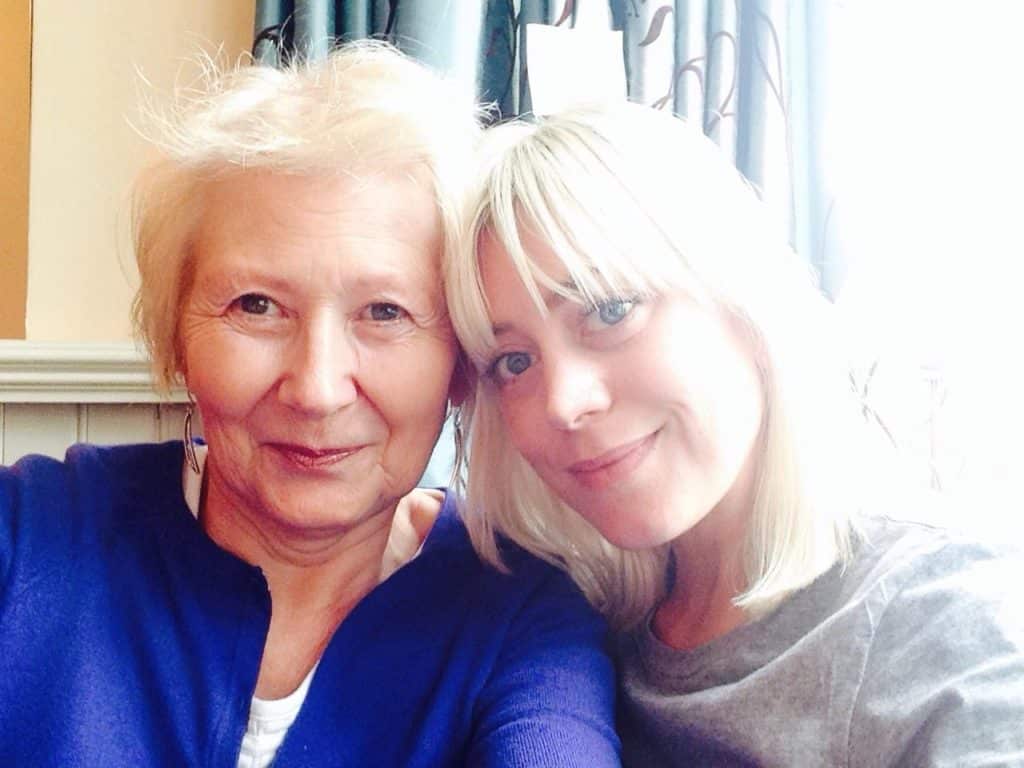Grief can be lonely. Despite being a universal human experience, it’s something that we, as a society, still struggle to talk about. It’s the elephant in the room, and an awkward topic of conversation, often both for those supporting and for those grieving.
We shy away from conversations about it because we fear saying the wrong thing or causing more pain, but this silence only perpetuates the isolation and loneliness that so often accompanies grief. Even when we have seen others experience the loss of someone close, it’s hard to comprehend the magnitude of it until it happens to you.
I know this first hand because I’ve been there. Three years ago, I found myself coming to grips with the sudden death of my mum, Rose. I’d never dealt with anything like this before, and I was completely unprepared for what lay ahead.
Grief is so much more than sadness – it’s incredibly physical too, and the range of emotions are huge. I didn’t expect to be constantly exhausted, have anxiety or struggle with extreme brain fog. Because we’re not grief literate as a society, it can be hard to express what’s going on. It can be common to keep your experience to yourself, or struggle to express what’s really happening to you.

One of the most challenging aspects of grief is the feeling of loneliness that often accompanies it. After a death, it can be difficult to find comfort or connection with others, and this can lead to feelings of isolation. That’s why we need to talk about grief more, because it can help us process our emotions and ease feelings of aloneness. Opening up and connecting with others has been key for my grief journey, and it’s an integral important part of the healing process.
Months after my mum died, I connected with another woman, Imogen, and we became fast friends, bonding over our shared experience of mother loss and all things grief. Together, we saw the need to create a space that had honest conversations about what grief was like, that explored the impact grief has on our lives in full. We launched our podcast, Good Mourning, and through that we quickly realised that so many others had gone through similar experiences after a bereavement and had stories to share. And that by connecting and sharing with fellow grievers, it helped our loneliness, and theirs.
When we share our feelings with others, we give ourselves permission to grieve and in turn, we can acknowledge our grief. By sharing it with others, we create a space for connection, allowing others to support us, which can be a healing experience for everyone involved.
In our new book, Good Mourning: Honest Conversations About Grief and Loss, there are hundreds of stories from grievers experiencing all types of loss and all ages. Because I believe that being vulnerable and sharing stories is one of the most powerful tools to connect with others and process loss.
Connection is important when it comes to grief support, too. If you know someone who is grieving, there are so many simple things you can do to be there for them. A big one – and it’s free – is to simply be there for them. It’s not rocket science, but being present and holding space without trying to fix things or office advice is one of the best things you can do. And keep showing up long after the funeral, because grief doesn’t go away after a few months. In fact, it’s often when the initial period of the death is over and normal life resumes that the reality can sink in and people need support the most,
Also, it’s not enough to just say you’re there for someone who is grieving – you need to show up for them as well. This might mean attending the funeral or memorial service, bringing over a home-cooked meal, or offering to help with practical tasks like cleaning or running errands. Small gestures can make a big difference. If you do offer practical support though, a word of advice. Don’t ask the griever what they need, but rather tell them what you can help with and when you will be available. It makes things much simpler for the griever.
Remember that everyone grieves differently. Some people might want to talk about their feelings, while others might prefer to keep busy with practical tasks. It’s important to respect the person’s boundaries and let them grieve in their own way.
It’s time to break down the barriers and start having more honest and open conversations about this essential part of the human experience. By sharing our experiences with loss and learning how to better support each other, we can all find the strength and resilience to move through difficult times and come out stronger on the other side.

